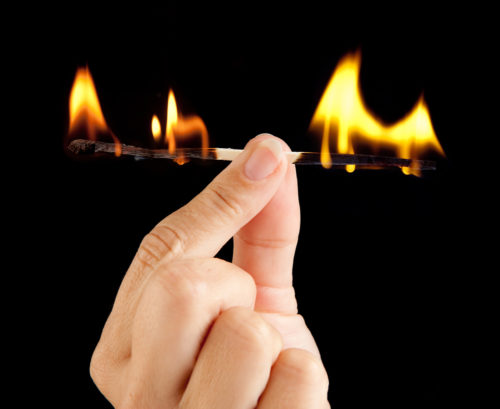Burnout is generally characterized by depression-like symptoms, stemming from an overabundance of external pressure. Today, that pressure is commonly felt by millenials, to the point that members of this group have been called “the burnout generation.” As the generation aged into the workforce, many found the realities of adulthood in the current economic climate (following the Great Recession of 2008) difficult to handle. Millennials often feel that student debt, stagnating wages, and the rise of the “gig economy” forces them into unwinnable situations.
The economic situation in America has declined since the older generations got their start. Student debt is a national crisis, and despite a strong job market wages have not given Americans any additional purchasing power in decades. In fact, a majority of millennials feel that one job isn’t enough, and are either working multiple jobs or have a “side hustle.”
Table of Contents
Burnout: Not Just a Buzzword
Burnout is recognized as a legitimate medical condition and shares many symptoms with depression. It’s an idea that’s been around since the 1970s, but no generation seems to suffer or have suffered from burnout more than millennials.
Millennials are tired. Despite the fact that more younger workers than ever are likely to have a college degree, it’s the generation of the gig economy, of working more than one job to make ends meet, and of struggling to find work that makes the enormous debt of college worth the degree.
Since 2013, diagnoses of depression have multiplied dramatically, especially among millennials and young adults. It’s up 47 percent in millennials versus 33 percent generally. As a generation, millennials are struggling with mental health in greater numbers than older generations.
What Changed For Millennials?
Millennials were sold on the same promises as their parents were. That they would go to school, work hard, and that would result in a good job, and from a good job more rewards would come. This didn’t out to be true for millennials. In fact, millennials are poorer than previous generations, and school and career prospects are much harder to access than in their predecessors. Millennials also grew up during a profound shift in the way we use our communications technology.
Social media can be bad for mental health, depending on how it’s used, and, as the first generation that grew up with it, millennials are particularly susceptible to the negative, addictive elements of this technology’s use. These additional stressors don’t help a generation that is widely overworked, underpaid, and burdened with debt.
There’s another issue. Thanks to the poor financial situation all around, more millennials than previous generations are taking on the costs of caring for their aging parents. This additional financial concern, coupled with staggering debt and the poor state of the workforce, is exacerbating the money trouble experienced by millennials.
The Millennial Quarter Life Crisis
“Midlife crisis” is a common enough phrase, but the term “quarter life crisis” has been finding its way into the public’s lexicon in recent years, and that has a lot to do with millennials. As a generation, these individuals reached their mid to late 20s and began to discover these unfortunate truths; that their very expensive degrees wouldn’t land them the types of jobs that would allow them to save or comfortably raise families, or buy homes. Despite the inherent differences in generational experiences, these ‘unfortunate truths’ can feel like failure for a millennials, as if they were not living up to the successes that were expected of them, and that they were told to expect of themselves.
This type of crisis could certainly be related to burnout, and related to the feelings of anxiety and depression that have become so commonly felt among members of the millennial generation. It’s all connected to the mismatch between how millennials experience American life, compared to the artificially reinforced perception of what American life is supposed to be.
To Pull Yourself Up By the Bootstraps, You Have to Have Boots
If millennials are entitled, it’s because they aren’t able to access the quality of life older generations established as the norm.
The prevalence of side gigs and multiple jobs held by millennials puts to bed the idea that the generation is lazy. The burnout and depression many millennials feel is partly because they, as a whole, have to work harder for less.
The greater question is, if millennials are entitled and lazy, who brought them up to be that way? Why has a whole generation grown up with expectations about the world that their parents and grandparents see as unreasonable? As children millennials were told that all an American needed to do was work hard, keep faith with their family and country, and that prosperity would be theirs, as it was for their parents. But the economy is weaker than it was when the baby boomers were growing up. It’s not just weaker wages that current generations are grappling with; it’s the debt, and the rising costs of living as well. It’s hard to pull yourself up by the bootstraps when you don’t have boots to so.
So millennials work themselves until they crash and burn, and still can’t afford many of the things their parents could. That’s probably why they’re burning out. The news isn’t all terrible, however. Millennials are finally entering the housing market and the booming tech sector is attracting a lot of millennial talent, with social media marketing as well as development skills heavily represented in the demographic. The winds could well be changing, and millennials might finally be recovering.
Image Source: https://depositphotos.com/





